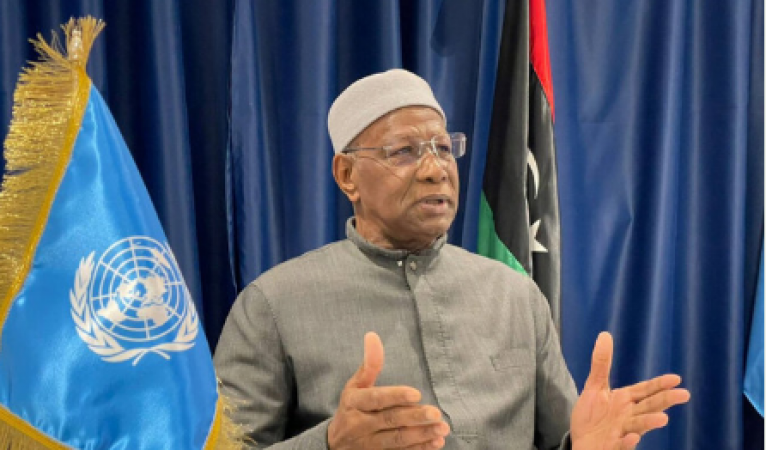
New York: The UN warned on Monday that holding successful elections in Libya would necessitate not only the creation of an appropriate legal framework within which they could take place, but also a political agreement that ensured support for the process from all stakeholders.
It happened two weeks after a joint committee made up of representatives of the competing governments in the nation approved the procedures to be followed legally in order to hold elections by the end of the year, but refrained from actually signing a deal.
The scheduled holding of presidential and parliamentary elections in December 2021 was postponed due to ongoing disagreements between political factions over a number of crucial issues, including who should be permitted to run.
Also Read: Israeli soldiers murder a Palestinian close to Bethlehem
Abdoulaye Bathily, head of the UN Support Mission in Libya and special representative of the secretary-general for the nation, promised to continue working to resolve the conflicts between the opposing factions so they can "reach a final settlement on the most contentious issues, make the draught laws implementable, and enable successful elections" during a Security Council meeting to discuss the most recent developments in the North African nation.
The country is still divided between the Government of National Unity, which is technically an interim government and is based in Tripoli in the west, and the Government of National Stability, which is supported by the fictitious Libyan National Army under the command of Gen. Khalifa Haftar.
Also Read: The National Assembly's 17th legislative term is officially opened by the Crown Prince of Kuwait
Representatives from both governments recently reached an agreement in Morocco on a draught law that calls for simultaneous presidential and parliamentary elections and addresses contentious issues like who is eligible to run for office, the requirement for a second round of voting in the presidential election even if one candidate receives more than 50% of the votes in the first round, and a clause stipulating that if the first round results in a tie, a second round of voting in the presidential election must be held. Additionally, it calls for the formation of an interim, unified government with responsibility for planning and managing the elections.
According to reports, each side is working to pass legislation that would forbid Haftar and Abdul Hamid Dbeibah, the prime minister of the Government of National Unity, from running for president. One of these issues is whether dual citizens and soldiers should be allowed to run; Haftar is a soldier and a US citizen, and his detractors charge that he wants to bring back a military dictatorship in Libya.
The requirements for running for president, the connection between the presidential and parliamentary elections, and the problem of forming a new unified government are all very contentious and demand, first and foremost, a political agreement among the main players and key constituencies across the Libyan political spectrum, according to Bathily.
Without such a deal, he continued, the laws would not only remain impossible to carry out but also run the risk of starting a new crisis.
"The main Libyan decision-makers must act in a spirit of compromise, put the greater interests of the Libyan people above all else, and come to a political agreement on these matters," said Bathily. "To avoid that gloomy prospect for the people of Libya and the region."
Without such compromises, the contested issues are likely to force the election into a dead end, similar to what happened in 2021, further polarising and destabilising the nation.
"While we all support the idea of a Libyan-Libyan solution as the cornerstone of any effective tool for long-term peace and stability, that slogan must not be used to cover up a plan to maintain the status quo at the expense of the political rights and aspirations for legitimate institutions and prosperity of the Libyan people."
The envoy urged the Security Council to exert more pressure on the Libyan government and "use your collective and individual leverage" to ensure that they exhibit the political will necessary to move their nation towards successful elections.
Also Read: On the anniversary of the Finsbury Park attack, London's mayor applauds the city's cohesion
He pleaded with the council to act in unison and oust "the spoilers out of the process towards Libya's full recovery."
Since the uprising that ousted former dictator Muammar Qaddafi in 2011, Libya has been embroiled in conflict for more than ten years, during which time numerous militias have formed opposing alliances with outside support.